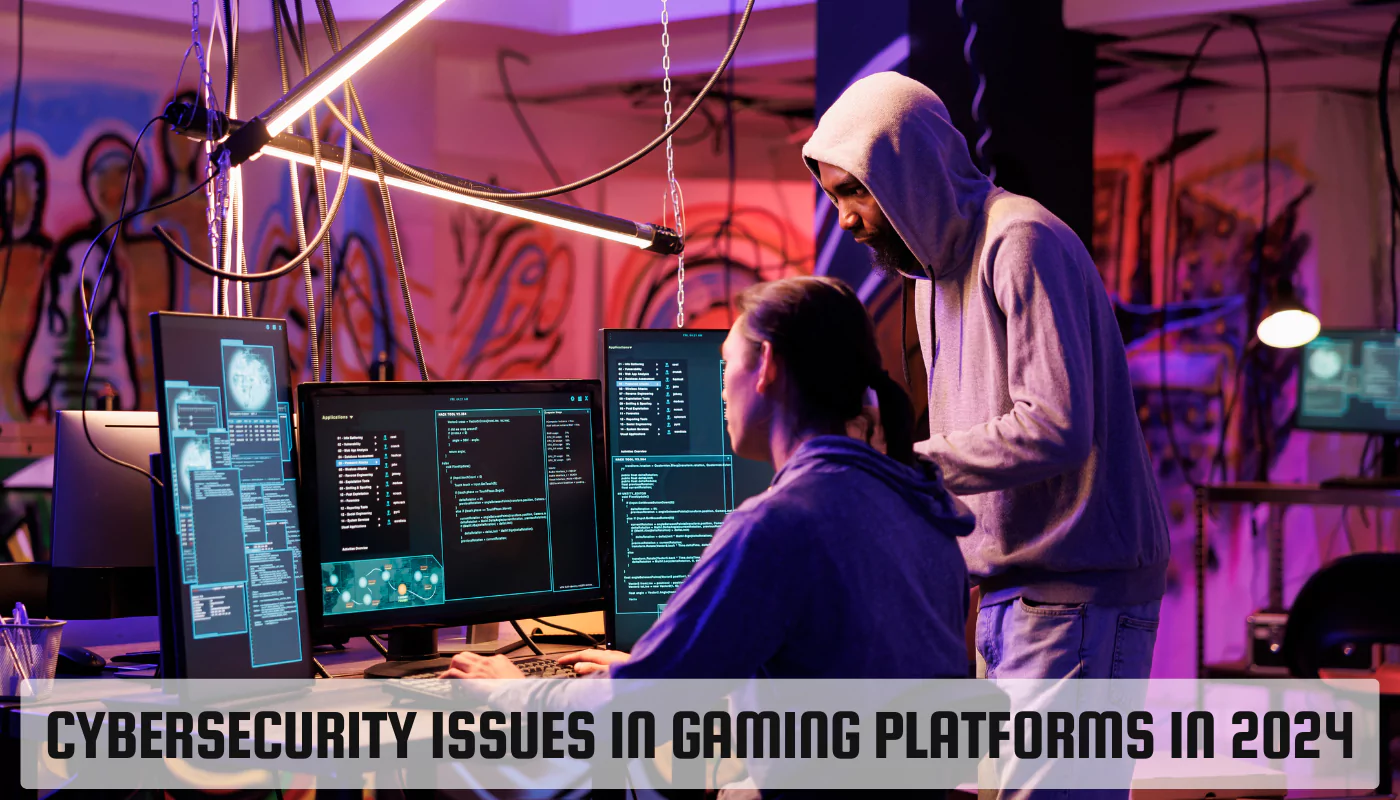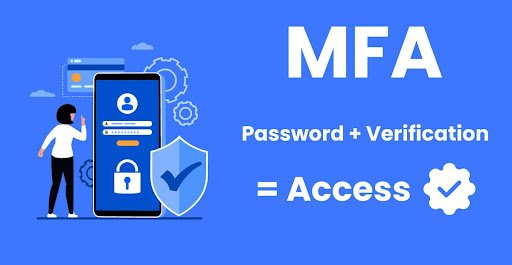Cybersecurity issues in gaming platforms in 2024

As the gaming industry continues to thrive in 2024, the integration of cutting-edge technologies and the growing popularity of online gaming platforms have introduced significant cybersecurity challenges. Gaming platforms are more connected, immersive, and complex than ever, making them attractive targets for cybercriminals. This article explores the cybersecurity issues plaguing gaming platforms in 2024, examining the threats, impacts, and measures needed to safeguard the gaming community.
Growing Threat Landscape
Gaming accounts are valuable assets, often containing personal information, payment details, and in-game purchases that can be worth substantial amounts of money. Cybercriminals exploit these accounts through various methods:
- Phishing Attacks: Players are tricked into providing their login credentials through fake websites or emails that appear legitimate. These attacks are becoming more sophisticated, often mimicking official communications from gaming companies.
- Credential Stuffing: Attackers use automated tools to try large numbers of username and password combinations, often obtained from data breaches on other platforms. If players reuse passwords across multiple sites, their gaming accounts become easy targets.
- Social Engineering: Cybercriminals manipulate players into revealing their account details through deceptive interactions, often posing as customer support or fellow gamers.
DDoS attacks are a persistent threat to gaming platforms, where attackers flood servers with massive amounts of traffic, rendering them inaccessible to legitimate users. The motivations behind these attacks vary, from disrupting popular gaming events to extorting money from gaming companies in exchange for stopping the attacks.

Malware remains a significant threat to both players and gaming companies. The methods of delivery and the types of malware used are constantly evolving. Players are often tricked into downloading malware disguised as game mods, cheats, or updates. Some of these stories have appeared on esports news all over the network. These downloads can contain keyloggers, spyware, or ransomware, leading to compromised accounts or encrypted files. Ransomware, which encrypts data and demands payment for its release, has increasingly targeted gaming platforms. In some cases, attackers have targeted the companies themselves, threatening to leak or delete sensitive data if ransoms are not paid.
Impact on Gamers and Platforms
When cybercriminals gain access to a gamer’s account, they often steal personal information such as names, addresses, and payment details. This data can be sold on the dark web, leading to identity theft and further financial losses. For gamers, the breach of their personal privacy can be distressing, leading to a loss of trust in the platform.
Many gaming accounts are linked to payment methods for in-game purchases. If an account is compromised, attackers can make unauthorized transactions, draining a player’s funds. Additionally, in-game items, including one of the most expensive skins that are covered on egw.news, and currencies, which can be worth real money, are often stolen and sold on secondary markets, leading to significant financial losses for the affected gamers.
The emotional toll of losing a gaming account, especially one that represents years of progress, investment, and social interaction, can be substantial. For example, G2 CEO has invested lots of time, efforts and money into esports and gaming. Gamers may experience frustration, anxiety, and a sense of violation. For some, gaming is not just a hobby but a community and a form of self-expression, making the impact of a breach deeply personal.
Account takeovers or bans resulting from the misuse of compromised accounts can lead to players losing access to their gaming communities. This can be particularly damaging in games that rely heavily on social interaction and collaboration. The loss of community ties can reduce a player’s connection to the game and result in a drop in player retention.
For gaming companies, the financial impact of cybersecurity breaches can be staggering. Direct costs include the expenses related to investigating and mitigating the breach, legal fees, and potential fines from regulatory bodies. Additionally, there are indirect costs such as lost revenue from downtime, decreased sales, and the loss of paying customers who may switch to competitors.
A cybersecurity breach can severely damage the reputation of a gaming platform. In 2024, the gaming community is increasingly concerned about privacy and data security. A single breach can result in negative press, social media backlash, and a loss of player trust. Rebuilding a tarnished reputation takes time and can be costly, as companies may need to invest heavily in public relations and marketing efforts to regain consumer confidence.
Gaming platforms are subject to various data protection regulations, such as the General Data Protection Regulation (GDPR) in Europe and the California Consumer Privacy Act (CCPA) in the United States. A failure to adequately protect user data can result in hefty fines and legal challenges. Moreover, affected users may file class-action lawsuits, further complicating the legal landscape for gaming companies.
Challenges in Securing Gaming Platforms
A significant challenge in securing gaming platforms stems from the behavior of users themselves. Many gamers still use weak, easily guessable passwords or reuse the same password across multiple sites. Despite efforts to educate users about the importance of strong passwords and multi-factor authentication (MFA), poor security practices remain widespread.

Gamers are often targeted by social engineering attacks, such as phishing or scams that trick them into revealing sensitive information. Even with security measures in place, if users fall victim to these tactics, their accounts can be compromised. The challenge for gaming platforms is not only to implement robust technical defenses but also to raise awareness and educate users about these risks.
Some gamers may resist security measures like MFA because they perceive them as inconvenient or unnecessary. This resistance can be particularly strong in gaming communities where speed and ease of access are highly valued. Balancing security with user experience is a constant challenge for platform operators.
Modern gaming platforms often integrate with various third-party services, such as payment processors, social media platforms, and in-game advertising networks. While these integrations enhance functionality, they also introduce additional security risks. If a third-party service is compromised, it can create vulnerabilities within the gaming platform itself.
Gaming companies often rely on third-party developers and vendors for game development, server management, and security tools. These supply chains can be vulnerable to attacks, such as the introduction of malicious code or backdoors into software updates. Ensuring the security of the entire supply chain is a complex and ongoing challenge.
As gaming platforms grow, scaling security measures to protect millions of users and vast amounts of data becomes increasingly difficult. Larger platforms require more sophisticated infrastructure and resources to monitor and defend against threats in real-time. The challenge is to maintain a high level of security without compromising performance or user experience.
While major gaming companies may have the resources to invest in state-of-the-art security, smaller developers and platforms often operate with limited budgets. This can make it challenging to implement comprehensive security measures, leaving them more vulnerable to attacks. At the same time this can’t be said about Epic Games, which the Fortnite prize pool keeps growing regularly. Balancing financial constraints with the need for robust security is a significant challenge for these smaller entities.
Mitigation Strategies
Enforcing strong password policies is essential for protecting user accounts. Platforms should require users to create complex passwords that include a mix of letters, numbers, and special characters. Additionally, password expiration policies can be implemented to prompt users to change their passwords regularly.
For gaming companies, implementing Role-Based Access Control (RBAC) ensures that employees only have access to the data and systems necessary for their roles. This minimizes the risk of insider threats and limits the potential damage from compromised accounts.
Regularly updating and patching software is critical to addressing known vulnerabilities. Gaming companies should implement a robust patch management process to ensure that all systems, from game servers to client applications, are kept up to date. Promptly applying security patches reduces the window of opportunity for attackers to exploit vulnerabilities.
Conducting regular security audits and penetration testing helps identify and fix potential vulnerabilities before they can be exploited. These audits should cover all aspects of the gaming platform, including code reviews, infrastructure assessments, and third-party integrations. It is also important to keep gaming fair, for example, Richard Lewis CSGO published a piece that resulted in the CEO of Ninjas in Pyjamas resigning. By continuously testing and improving security measures, platforms can stay ahead of emerging threats.
Establishing a vulnerability disclosure program encourages ethical hackers and security researchers to report security flaws they discover. Offering rewards or recognition for responsible disclosure can help gaming platforms identify and address vulnerabilities more quickly.
Conclusion
As gaming platforms continue to evolve in 2024, so do the cybersecurity challenges they face. Cybercriminals are becoming more sophisticated, targeting both players and gaming companies with a variety of tactics. To protect the gaming community and maintain trust, gaming platforms must prioritize cybersecurity, employing advanced technologies and fostering a security-conscious user base. By addressing these issues head-on, the gaming industry can ensure a safer and more enjoyable experience for all players.









